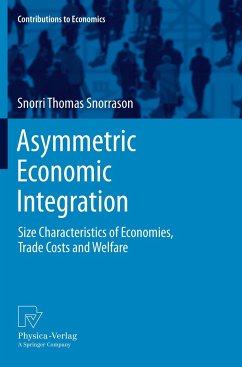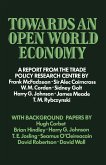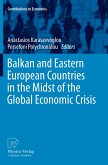This book investigates whether the effects of economic integration differ according to the size of countries. The analysis incorporates a classification of the size of countries, reflecting the key economic characteristics of economies in order to provide an appropriate benchmark for each size group in the empirical analysis of the effects of asymmetric economic integration. The formation or extension of Preferential Trade Areas (PTAs) leads to a reduction in trade costs. This poses a critical secondary question as to the extent to which trade costs differ according to the size of countries. The extent to which membership of PTAs has an asymmetric impact on trade flow according to the size of member countries is analyzed by employing econometric tools and general equilibrium analysis, estimating both the ex-post and ex-ante effects of economic integration on the size of countries, using a data set of 218 countries, 45 of which are European. ?








